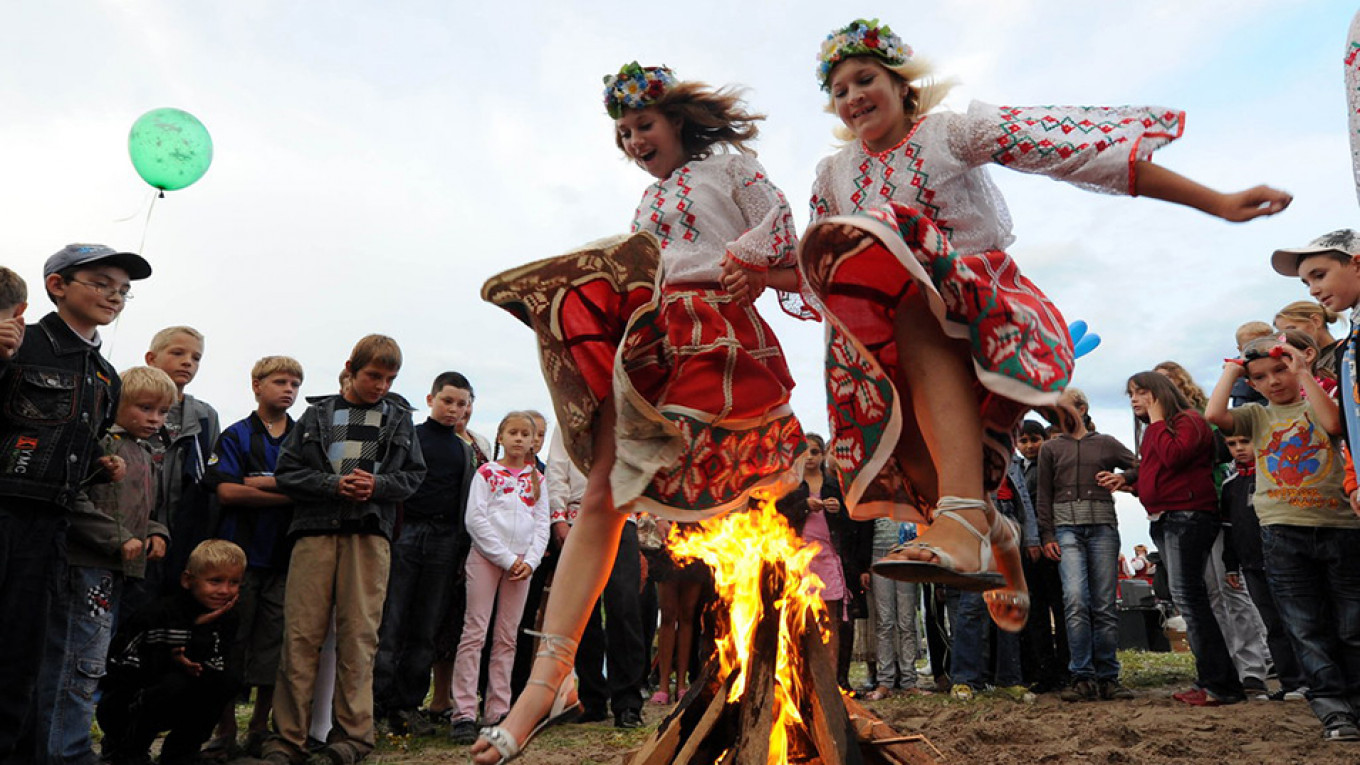
The summer solstice is here! Get out your sleep masks and blackout curtains. In Moscow the sun rose on June 21 at 3:44 a.m. and will set at 9:18 p.m., giving the city 17 hours and 33 minutes of sunlight — a whopping 10 hours and 33 minutes longer than the amount of sunlight we got on the winter solstice Dec. 21.
The ancient tribes that inhabited this part of the world celebrated the solstice with a night of fire, water, dancing, singing, and all kinds of exuberant rituals. Called the Night of Ivan Kupala (from the word “to bathe”), pagan villagers would head into the fields and forests in the evening. They would search for the mythical fern flower, which supposedly only bloomed on the shortest night of the year, and gathered other herbs whose potency was considered greatest on the summer solstice.
Huge bonfires were lit and the villagers sang and danced around them. Couples would hold hands and jump over bonfires to show and ensure their devotion; if their hands uncoupled, their union would soon uncouple, too. Single women and men also leapt over the fire to bring good fortune.
Unmarried women and girls wove flower garlands for their hair. Later in the night they’d set the garlands, or sometimes candles on little boats, into rivers or lakes and then watch their paths to divine their fortunes. In some places, effigies were also launched into the water. In the south, villagers bathed in fresh water; in the north, they went to the bath houses.
When Christianity began to encroach on these ancient rituals, the holiday of bathing became the day to honor John the Baptist on June 24. Today in much of the Orthodox world, the church holiday is celebrated on July 7. Pagans and folklore enthusiasts celebrate the solstice on the actual shortest night of the year, the night of June 23-24, the night of July 6-7 — or all three.
In Andrei Tarkovsky’s film “Andrei Rublyov,” which takes place in the 14th century, the night of Ivan Kupala was still celebrated widely by the villagers. For Rublyov, it’s a night of temptation.






